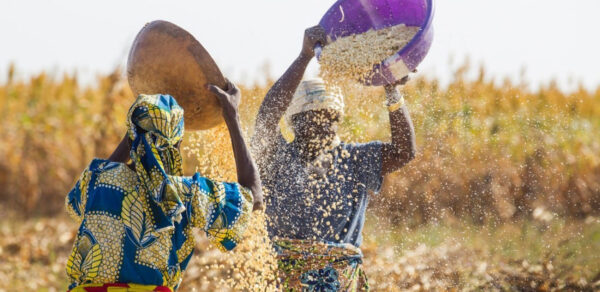The British International Investment (BII), a British development financing institution, has announced a $7.5 million investment in the Nigerian agro-technology platform Babban Gona. This funding, made public on September 2, 2025, aims to improve agricultural yields, incomes, and climate resilience for 140,000 smallholder farmers in northern Nigeria by 2029.
Babban Gona operates in a region of Nigeria that, despite accounting for over 50% of the national maize production, faces several structural challenges. It is noted that food insecurity, inadequate financing, and the intensification of extreme weather events pose constant threats to local agricultural production. This situation underscores the need to support smallholder farmers to enhance their productivity and resilience in the face of economic and environmental crises.
In this regard, Florence Eshalomi, a Member of Parliament and UK Trade Envoy to Nigeria, emphasized that “the investment aims to provide farmers with access to financing, training, and services to improve their yields and strengthen their climate resilience.”
Babban Gona’s model is based on a franchise agricultural system, where the most successful farmers are trained to manage their own agricultural micro-enterprises. This “innovative model” helps structure agricultural activities and facilitate access to financing through partnerships with local banks, addressing a historical financing gap. This approach, according to experts, not only creates local agricultural entrepreneurs but also key economic players in their communities, promoting regional economic growth and poverty reduction.
Impact and Economic Implications
The BII funding is expected to significantly enhance agricultural productivity and strengthen farmers’ capacity to withstand climate shocks. The highlighted objective is to extend the impact to 140,000 farmers by 2029, generating sustainable incomes while contributing to the climate resilience of small farms.
Kola Masha, CEO of Babban Gona, emphasized the crucial role of the British government in the trajectory of the agro-technology platform. This BII commitment, “ten times higher than our 2013 funding, reflects our shared vision to improve the livelihoods of smallholder farmers.”
It is worth noting that agriculture accounts for approximately 22% of Nigeria’s GDP and employs nearly 38% of the workforce. Therefore, it is a strategic sector for the country’s economic development. This investment in agritech, particularly in an innovative model focused on AI and inclusive finance, represents a sustainable growth driver for the country and a key element in transforming the agricultural sector, according to Nigerian authorities.


